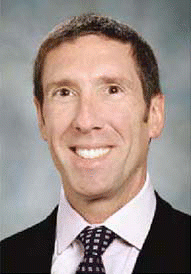After a hiatus associated with a checkered past, gene therapy is again showing promise in several fields of medicine, and otolaryngology is no exception. In separate phone interviews, two experts in gene therapy discussed the applications that otolaryngologists may be seeing in the near future.
Explore This Issue
September 2006Gene therapy is an embryonic field with enormous potential, said Bert W. O’Malley, Jr., MD. He noted that much progress is being made in the field in a quiet way, without the drum roll and spotlight that accompanied the field in the 1980s and 1990s. Dr. O’Malley is the Gabriel Tucker Professor and Chair of the department of otorhinolaryngology-head and neck surgery and co-director of both the Center for Head and Neck Cancer and the Center for Cranial Based Surgery at the University of Pennsylvania Health Systems in Philadelphia.
In theory, it would be easier to paste a little gene therapy on a precancerous lesion and prevent cancer progression rather than treat a large malignant lesion with more radical surgery once it has developed. – – Bert W. O’Malley Jr., MD
Dr. O’Malley pointed out that several important clinical areas within the field of otolaryngology could presently benefit from the application of gene medicine and gene therapy. These areas include head and neck cancer therapy and tumor biology, neurosensory hearing loss and balance disorders, and plastic and reconstructive surgery. Eventually all the subareas of otolaryngology will be touched by the ongoing advances in gene therapy research, he said.
He noted that the field is enjoying a quiet renaissance after earlier problems. Gene medicines were incredibly exciting in the late 1980s to mid-1990s, Dr. O’Malley said. There was a little negative tenor for awhile, based on one incidental complication and lack of corporate investment. In particular, gene therapy got a black eye from a widely publicized clinical trial that ended in 1999 with the death of a young man who had a metabolic disease that was caused by a genetic disease of the liver. After this tragedy, the Food and Drug Administration (FDA) halted many gene therapy trials and both National Institutes of Health (NIH) and corporate funding significantly diminished for this field.
Another expert agreed that gene therapy is emerging from a period of neglect. Gene therapy has had a tumultuous past, and this legacy has created hesitation to pursue gene therapy in the present, said Gary B. Clayman, DMD, MD. There has been almost a dearth of gene therapy research despite its potential. Dr. Clayman is a professor of head and neck surgery and cancer biology at the M. D. Anderson Cancer Center in Houston, Texas.


Leave a Reply